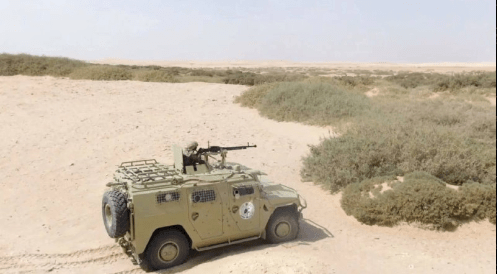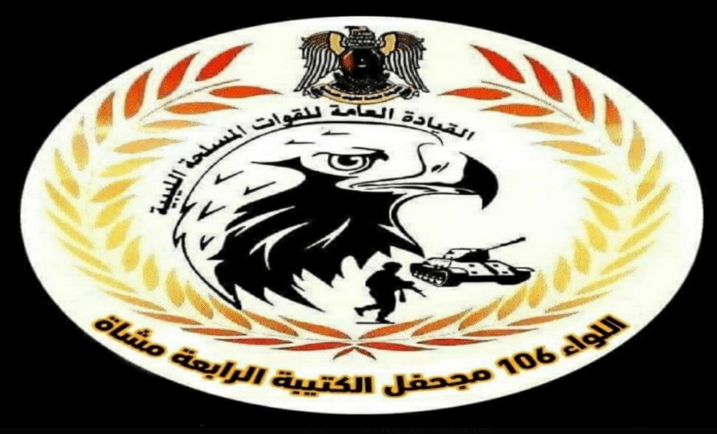Even before the death of Prigozhin in a plane crash in Russia on August 23, 2023, Russian Deputy Defense Minister Yunus Bek Yevkurov went to Libya the day before to meet Marshal Haftar, commander of the Libyan National Army which controls part of Libyan territory. Libya, which had been quite neglected by Russia delegating its affairs to Evgeny Prigozhin and some GRU operators, seems to once again become a strategic country for Moscow serving as a link between its expansion in the Sahel and the installation of a Russian naval military base in the Mediterranean. On site, a source from the Russian Ministry of Defense, from whom we were able to cross-check all the information, told us that he had been to Libya several times before the war in Ukraine. He says there has never been so much noise, tectonic shifts are brewing here. He thinks “great chaos is brewing.”
With Verstka, an independent media, and the support of Radio Svoboda, the Russian service of RFE/RL, we discovered that thousands of Russian Defense Ministry personnel as well as “Wagner” recruits were transferred to Libya since the beginning of the year under the cover of a paramilitary organisation, probably African Corps.

Arrival of thousands of Russian fighters in Libya
According to information obtained by our consortium, Russia has been transferring Russian military and fighters to Libya for the past three months. According to a Libyan security source that we consulted, there are already 1,800 Russian soldiers in the country for the past two weeks. They are mainly grouped in Eastern Libya, in territories controlled by Khalifa Haftar’s Libyan National Army and its affiliated militias. Some of them were transferred to Niger while others remained in Libya awaiting further instructions, according to the consortium source. This information is also shared by a Russian Defense Ministry source, who indicates that several hundred members of the special forces were redeployed from Ukraine to Libya at the beginning of the year.
Several thousand professional military personnel and other fighters belonging to the Wagner Group’s « African Directorate » arrived in Libya from February to April. According to the Russian security source, the soldiers are in Libya unofficially and are presented as representatives of a private military company. AEOW believes that it could be the new African Corp brand carried by the GRU Special Actions Service outside Ukraine commanded by General Andrey Averyanov.
According to our consortium sources, part of the Russian military personnel is responsible for the education and training of Libyan fighters and recruits of the “African Directorate”. The other part carries out targeted missions such as the transport of military equipment, said one of the interlocutors at our consortium. The Russian contingent in Libya would be controlled by four commanders rotating between Syria and Libya. In turn, they would report directly to Yunus-Bek Yevkurov.
Thanks to technical OSINT tools, several individuals of Syrian nationality were also detected among Russian individuals on military bases. The @KHADORA1 account was recently detected at Al Kharoba airport, which has been used to transport equipment by Russian planes since December 2023.
Active military bases
Our sources indicate the presence of this new contingent on several bases affiliated with the LNA: Kharouba/Al Khadim, Jufra, Tobruk, with two further bases in the south. They also mention the existence of a new training camp near Benghazi which we have not been able to identify. Nevertheless, our online research detected a revival of the Russian presence and events in recent months.
Ghardabiya airbase, IVO Syrte
A Russian personnel under the name “Andrei” was identified in direct proximity of the airbase. The appearance of this account correlates with a parade/military exercise held by the Libyan National Army (LNA).



“Andrei” was geolocated in the area on 05th March 2024, shortly before the LNA organised an exercise on 16th March 2024. The event included several Pantsir anti-aircraft defence systems.
The event was geolocated south of Ghardabiya, at the following coordinates: 30.815761, 16.86251. Using satellite imagery from Sentinel 1, All Eyes on Wagner were able to accurately determine the location where the Pantsir systems were located during the exercise (Sentinel URL). The small runway is only visible on Sentinel 1 and does not appear on platforms such as Google Earth.
Al Marj
Pictures of alleged Russian mercenaries visiting a shop in al Marj were released on Libyan social media on 17th March 2024. All Eyes on Wagner confirmed the pictures were taken in al Marj through reverse image and image geolocation techniques. The pictures were taken on one of the streets of al Marj and the shop identified.
In addition, an account associated with a Russian phone number was located at the al Marj airport. The account appeared in the area in February 2024. We were unable to collect any further information about this account.
Waddan
On 30th March, the Telegram account Milinfolive, associated in the past with the coverage of Russian military and Wagner Group operations in Africa, published several photos of a Libyan National Army (LNA) training exercise.


The vehicles were identified as being the 5-door versions of the Russian made Tiger SBM VPK-233136 Armoured Personnel Carrier (APC).


The unit badge visible on the pictures allowed us to confirm the unit of the LNA to which the vehicles were delivered. The Tiger APCs featured in Milinfo Live’s video were delivered to the LNA’s 106th “Syrte” Brigade, commanded by the son of Marshall Haftar, Saddam Haftar. The brigade had already received TAG Terrier LT79 vehicles in 2019.


The video posted by MilinfoLive was geolocated to an area between the Jufra airbase, a known hotspot of Russian military presence in Libya, and Waddan.
Brak Al Shati
According to Jalel Harchaoui, associate fellow at the British think tank Royal United Services Institute, the Brak Al Shati military base has seen its workforce increase by almost 25%. Using various OSINT tools, we were able to confirm the presence of Russian military / former military personnel around Brak al Shati airbase. This presence is relatively new. Previous investigations, as recently as March 2024, had not revealed such presence, suggesting it is quite recent.
One of the detected accounts belongs to a Russian soldier registered under a Russian number under the nickname “Arkan”. The owner of the account is 28-year-old Russian Maxim Kukol. In other users’ phone books he is listed as « Scumbag ». Until 2021, it had no connection with the military domain according to Russian administrative databases. Kukol lived in Sochi and worked as a security guard, storekeeper, loader and factory worker. In 2022, he lived in Voronezh with no further indication of his profession.
Deliveries of military equipment to the port of Tobruk
The delivery of military equipment and vehicles from Syria to Libya was the most visible aspect of the increased Russian involvement in Libya observed over the past few weeks.
The port of Tartus in Syria was the point of departure for Russian military vessels used to deliver military equipment to Libya. This port has already been used in the past for Russian deliveries of wheat and military equipment, and as a departure point for Russian ships operating in the Mediterranean Sea.
Two Russian vessels were spotted in the port of Tartus on 02nd April 2024. The vessels, Ropucha class landing ship LSS Aleksandr Otrakovsky and Ivan Gren, were later spotted off the Cretan coastline on 06th April.The Aleksandr Otrakovsky is a large landing vessel that redeployed from the North Sea to the Mediterranean in late 2023.
On April 08, 2024, the two Russian military vessels were observed arriving at the port of Tobruk.
One of the two Russian military vessels was filmed by Libyan media in the port of Tobruk, confirming the Russian presence on April 08, 2024.
This latest delivery oft was reported by some sources as the fifth delivery of Russian equipment to Tobruk over the last 45 days. The equipment delivered includes vehicles and weapons, such as 2S12 Sani mortars or BTR and BM APCs.
The Russian military source himself also stated that he was in the “military port” and had escorted equipment from there to the “military bases”.
Kremlin interests in Libya and North Africa
Since the death of Prigozhin in August 2023, the Russian Ministry of Defense has relaunched discussions with Libya and Marshal Haftar. The Russian Defense Ministry delegation led by Yunus Bek Yevkurov has visited Libya four times since August 2022 and was seen by commentators as a major new boost for Russian engagement in the country. Marshal Haftar was also invited to Moscow in September 2023 after being considered « an imperfect and outmatched military leader » by Russian private agents in Libya in 2020. It appears Russia has changed its mind and is here to stay and extend with a navy base on the Mediterranean Sea.
For Jalel Harchaoui, the Kremlin’s objective in Libya is clear: “Libya offers ultra-valuable access to the Mediterranean, serves as a southern flank to pressure NATO and the EU, and enhances dialogue with other key Arab countries. Importantly, it also acts as a passageway into Sub-Saharan Africa, offering a strategic path into countries like Sudan, Niger, and beyond. Thus, Libya holds crucial strategic value for Russia, and the Haftar family’s cooperation allows Russia to secure these objectives while minimising costs. Said crudely, on a material and pecuniary level, the Haftar family rewards Moscow for doing exactly what Moscow wants to do anyway. In all cases, Russia has been in the process of becoming as strong as possible on Libyan soil, knowing that that strength will have several uses”.
Not only is Russia intensifying its military activities in the East of Libya but also its diplomatic activities in the West. Since 2023, Russia has aimed to reopen a consulate in Benghazi and an embassy in Tripoli. The new ambassador, Aidar Aghanin, an Arabic speaker who was director of RT channel in Arabic and served in Jordan, divides his time between the two Libyan cities having established his headquarters at the Radisson hotel in Tripoli. During the Africa Russia summit in July 2023, the government of Mohammed Yunus Al-Menfi (in charge of Tripoli) was received directly in a bilateral meeting with Vladimir Putin. On May 9 from Moscow while the Haftar clan visited the Russian government, Belqacem Haftar, one of Marshal’s sons, declared having met with a Russian diplomat to discuss the unification of the Libyan political factions and resolve the political and military crisis . Other Libyan officials from Tripoli are expected in Russia very soon.
But it’s not just about Libya. The Kremlin has placed seasoned personnel in other neighbouring countries such as Algeria. On site, Russian interests are represented by Valerian Shuvaev, Arabic-speaking and French-speaking ambassador, who served as number 2 in Yemen, Iraq, Libya and Morocco. In Morocco, it is Vladimir Baibakov, also Arabic and French-speaking, who was ambassador to Mauritania. Alexandre Zolotov has been Russian ambassador to Tunisia since 2022. Arabic-speaking and French-speaking, he has been stationed in Algeria, Morocco, Tunisia and Oman. These ambassadors are figures from the Primakov school, a former senior executive of the KGB and Russian Ministry of Foreign Affairs from 1996 to 1998.
According to a Western diplomatic source, these diplomats and Kremlin representatives are not there by chance: “It’s to be noted that most of the Russian ambassadors managing the Northern African region around Libya are seasoned diplomats with significant experience in the Middle-Eastern countries. Some are even francophones, showing a renewed strategic interest from Russia in this region”.
Another important figure in the Kremlin’s security spheres is in the region: General Serguey Surovikin, the former commander in charge of Russian military operations in Ukraine. Dismissed from his position for his links with the Wagner group following the death of Evgeny Prigojzhin, he took the post of military representative in Algeria. According to a source who prefers to remain anonymous, Surovikin was regularly in Libya during his year of exile. According to unverified sources, he is currently returning to Russia to be called for more important functions.
With its feet in the Mediterranean waters, the Kremlin takes the lead in a corridor going from North Africa to the borders of the Sahel while reaching their Syrian base. Russia has become the new security partner of a region destabilised by terrorist violence, coups, civil war and illegal immigration. Can we trust that Russia will effectively manage local instabilities and can we afford to delegate responsibility for security issues at the gates of Europe to Russia? Can we also imagine that Russia will not take advantage of the immigration lever (materially or in the information sphere) as we have seen them do on the border with Belarus?


Laisser un commentaire